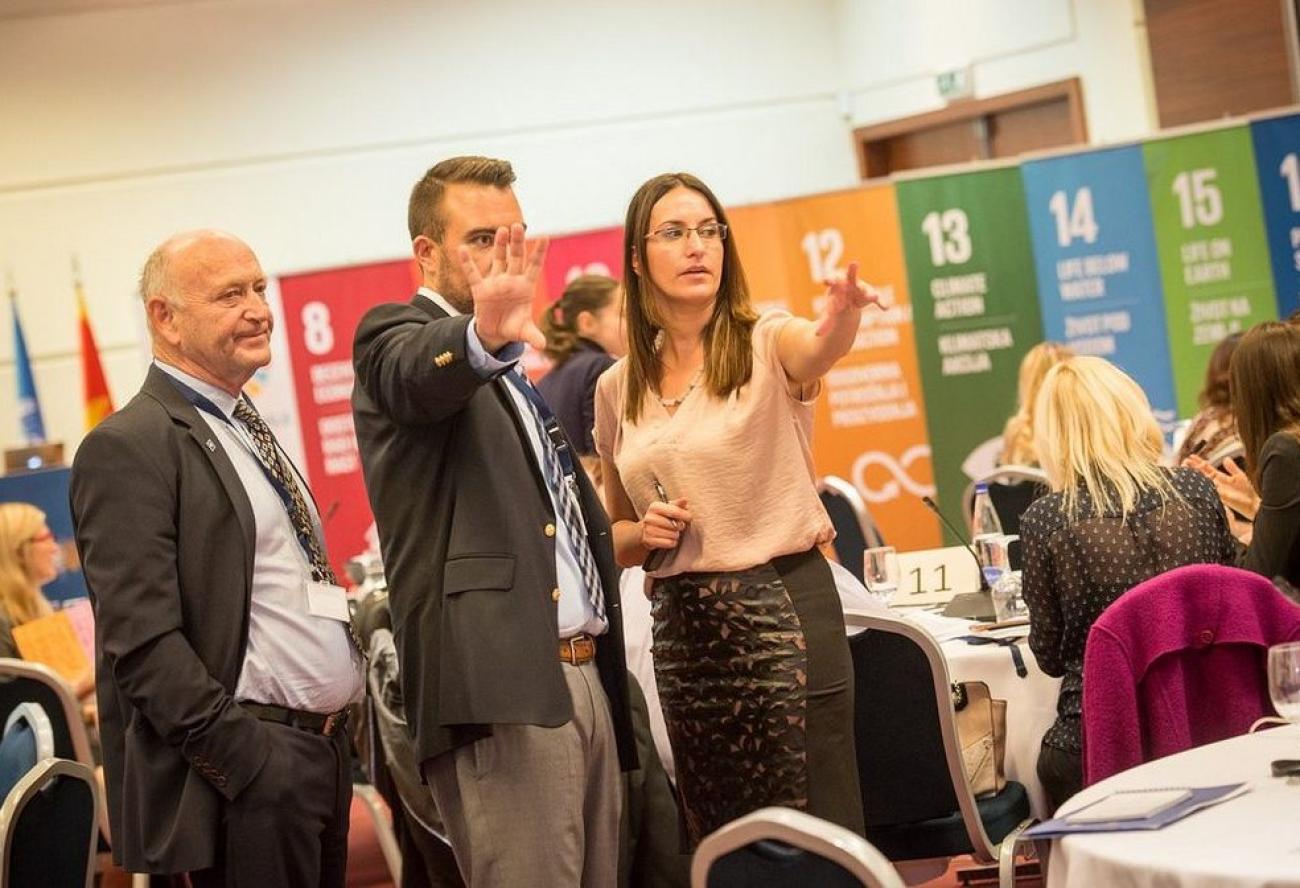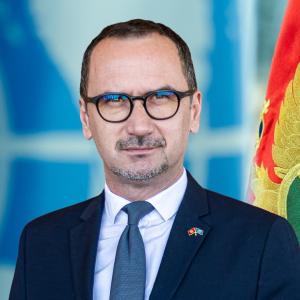The modern age of globalisation brought completely new paradigm of life, exposing people and countries all over the world to a number of new, emerging uncertainties. In a fast-changing world, challenges are many and more complex, and the way to address them can hardly be more efficient than through partnerships.
Montenegro is no exception. One of country’s strategic partnerships is collaboration with the UN System in the country. This cooperation was even more strengthened since Montenegro became a member country of the UN in 2006.
In 2015, the United Nations System and the Government of Montenegro worked on developing a new five-year plan of cooperation focused on areas of human rights and development. The strategic document called UNDAF (United Nations Development Assistance Framework) builds on a joint vision which utilises UN's expertise and innovative methods to help make a difference in people's lives.
"Our goal is to reach the highest possible level of synergy”
Igor Lukšić, Deputy Prime Minister of Montenegro and Minister of Foreign Affairs and European Integration
“Reaching consensus on where are the main issues, what are the main priorities, where the UN can make a difference. That's about the most valuable outcome” said Jan Sand Sorensen, consultant for the UN Montenegro who helped process of development of a new UNDAF.
Linking the recently adopted 2030 Agenda for Sustainable Development with Montenegro’s key priority – the EU accession, was a key driver for planning cooperation for the period 2017-2021.
“We should use the upcoming five-year plan of cooperation with the UN for defining cooperation in the areas which are crucial for supporting final EU integration phase and which would, at the same time, respond to global challenges articulated through 17 Sustainable Development Goals. The overall goal is to reach the highest possible level of synergy,” said Igor Lukšić, Deputy Prime Minister of Montenegro and Minister of Foreign Affairs and European Integration.
The importance is truly substantial, as well as the timing. We are defining our five-year cooperation programme just after the new development agenda until 2030 has been adopted.” Milorad Šćepanović, Director-General for Multilateral Affairs, Ministry of Foreign Affairs and European Integration of Montenegro. The Montenegrin Government indicated the need for focused support from United Nations based on their comparative advantages.
“But through a selective approach, with prioritisation, which will lead to concrete progress in areas which are important for Montenegro. Such as sustainable development with climate dimension, human rights and the rule of law. That’s the essence,“ said Milorad Šćepanović, Director-General for Multilateral Affairs, Ministry of Foreign Affairs and European Integration of Montenegro.
And that's exactly how the process evolved. Gathered around a joint vision of the future, the UN and the Government identified four priority areas – four pillars of cooperation in the next five years: social inclusion, economic governance, environmental sustainability, and democratic governance. They agreed to merge their forces in these areas to secure changes that will bring greater social justice, enhanced governance and sustainable use of resources. The ultimate aim is enabling Montenegrin people to live longer, healthier and more prosperous lives.
“We are using a Foresight exercise approach which is taking the view of the future and to get people really engaged and thinking about the future”
Fiona McCluney, UN Resident Coordinator in Montenegro
Creating the new five-year plan of cooperation was not an ordinary journey. In order to obtain a meaningful insight into the future, especially concerning people’s priorities until 2021 and concrete areas in which the UN could make difference in their lives, the UN Team reached out to an innovative method of long term planning, called Foresight.
“Foresight is about thinking about change. How changes can happen, how they might happen, what might be the implications of those changes, and then preparing for change. Foresight is thinking about the future and how we use it. The work we do with communities, organizations, governments, agencies like the UN, to help them to challenge their assumptions about the future,” Said John A. Sweeney, Deputy Director Center for Postnormal Policy and Future Studies.
The UN used foresight tools to obtain concrete feedback from young people and their associations, NGOs working with vulnerable people, prominent individuals and progressive thinkers, academia, employers’ associations, human rights groups, state institutions and the Government.
“The UN is applying this innovating concept as a way to bring stakeholders together, to get people to have a new way of dialogue, so they could feel their voice can contribute to a conversation,” said Sweeney.
”The UN is applying this innovating concept as a way to bring stakeholders together, to get people to have a new way of dialogue, so they could feel their voice can contribute to a conversation”
John A. Sweeney, Deputy Director Center for Postnormal Policy and Future Studies
The Foresight is basically about engaging new voices of Montenegro in critically thinking about the future of the country.
“The foresight approach is innovative in terms of writing strategies, especially for us, civil servants, who deal with the strategic documents on a daily basis. This is something that we can apply in practice, in the future,” Marija Mijušković, Ministry of Sustainable Development and Tourism, while her colleagues from the Ministry of Sustainable Development and Tourism Dragana Šćepanović underlined the importance of synergy. “If we plan some joint activities and priorities together we will implement them faster,” said her.
Taking a deep insight into the country’s future development challenges helped the Government and UN Team to jointly shape the vision of future collaboration. It is based on realistic circumstances and upcoming challenges, as seen by the people of Montenegro.
This way, the joint cooperation will be highly responsive to people’s needs.



















